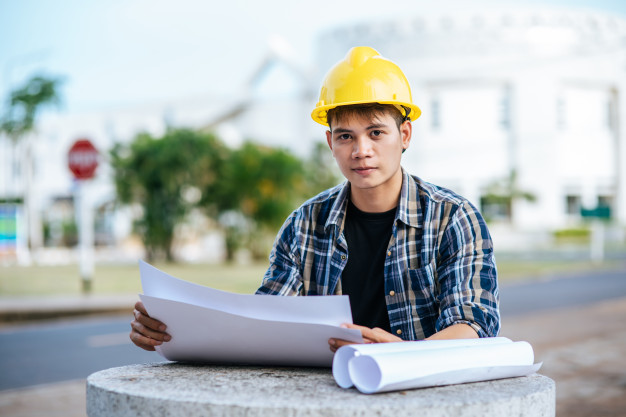Buying a home is one of the biggest financial decisions you’ll make, and before you finalize the purchase, it’s crucial to ensure the property is in good condition. Nearly 95% of home purchases go through a buyer’s inspection process before the final agreement.
A home inspection helps uncover any potential issues before you commit to the purchase. In this guide, we’ll cover how home inspections work, why they matter, and what to expect during the process.
What is a Home Inspection?
A home inspection is a detailed evaluation of a property’s condition. A licensed home inspector thoroughly examines the home for structural issues, electrical and plumbing problems, HVAC functionality, and more.
The inspector then provides a home inspection report, outlining any minor or major issues found during the evaluation. This report helps buyers decide whether the home is worth the investment and if they should negotiate repairs or adjustments before finalizing the deal.
Read More: What to Expect from a Key Home Inspection Service
Why is a Home Inspection Important?
While no home is perfect, a thorough inspection can help you:
✔ Identify hidden issues before purchasing.
✔ Avoid expensive repairs down the line.
✔ Negotiate repairs or pricing adjustments with the seller.
✔ Ensure the home is safe and structurally sound.
Skipping a home inspection could cost you thousands in unexpected repairs!
When Should You Get a Home Inspection?
1. Buyer’s Home Inspection
The most common type of home inspection occurs after both the buyer and seller have agreed on an offer. Before finalizing the purchase, the buyer requests a professional inspection to:
- Assess the condition of the home.
- Negotiate the price based on potential repairs.
- Request necessary fixes from the seller.
2. Seller’s Home Inspection
Some sellers choose to inspect their home before listing it for sale. This helps them:
- Identify and fix issues in advance.
- Avoid buyer negotiations that could lower the sale price.
- Make the selling process smoother and faster.
Buyers should still conduct their own inspection, even if the seller provides a pre-listing report.
How to Get a Home Inspection
Step 1: Hire a Professional Home Inspector
Hiring the right home inspector is key. Here’s how to find the best one:
✔ Ask your real estate agent for recommendations.
✔ Check online reviews to see what past clients say.
✔ Verify licenses and certifications before hiring.
✔ Choose an experienced inspector with a strong track record.
Step 2: The Home Inspection Process
A certified home inspector follows a home inspection checklist, evaluating key areas of the house. They provide a detailed report on any concerns or issues found.
✅ Pro Tip: Key Property Inspection offers top-rated home inspection services in Los Angeles County.
How Much Does a Home Inspection Cost?
Home inspection costs vary based on factors like location, home size, and property type.
📌 Average Home Inspection Cost in Orange County: $200 – $500 per house.
📌 Inspection Duration: 2 – 4 hours (depending on property size).
What to Know Before a Home Inspection
1. Be Patient
A home inspection is a detailed process—inspectors examine every part of the property, including legal documents. Avoid rushing the inspection; it’s an important step in protecting your investment.
2. Do Not Bring Kids or Pets
Children and pets can be a distraction during the inspection. It’s best to leave them at home to allow the inspector to focus on their work.
3. Wear the Right Shoes
Home inspections require walking through the entire property, including lawns, basements, and crawl spaces. Wear comfortable, closed-toe shoes instead of heels or sandals.
What Happens During a Home Inspection?
A professional home inspector takes 3-4 hours to assess an average-sized home. They inspect both interior and exterior components to identify any safety concerns or legal issues.
What Inspectors Check:
✔ Plumbing issues
✔ Electrical systems
✔ Water damage and leaks
✔ Walls, ceilings, and floors
✔ HVAC system (Heating, Ventilation, & Air Conditioning)
✔ Pest infestations
✔ Structural integrity
✔ Legal documentation
✔ Fire safety & smoke detection
What Inspectors Do NOT Check:
🚫 Cosmetic features (paint, wallpaper, furniture)
🚫 Personal belongings (crockery, groceries, decorations)
🚫 Non-safety-related damages (minor carpet stains, small cracks)
What Happens After a Home Inspection?
Step 1: Reviewing the Inspection Report
A detailed home inspection report (typically 15-70 pages) is provided within 3-4 business days. It includes:
✔ A summary of the home’s condition.
✔ Descriptions of any issues found.
✔ Images of problem areas.
✔ Recommendations for repairs or improvements.
Step 2: Who Pays for Repairs?
There are two possible outcomes after an inspection:
- The buyer requests repairs from the seller before closing.
- The seller refuses repairs, and the buyer can either negotiate the price or walk away.
Read More: Home Inspection Checklist: What You Need to Know
How Home Inspections Affect the Sale Price
📌 Scenario 1: Buyer Walks Away
If a home buyer backs out after the inspection, the seller must relist the house, delaying the sale process.
📌 Scenario 2: Buyer & Seller Negotiate
Both parties may adjust the final sale price based on repair costs.
📌 Scenario 3: Seller Rejects Repair Requests
If the seller refuses to make repairs, they may relist the home and wait for another buyer.
Final Thoughts: Why Home Inspections Matter
A home inspection is more than just a formality—it’s a critical step in making a smart, informed investment. It protects buyers from unexpected repair costs, ensures the home is safe, and allows for fair pricing negotiations.
🔹 Key Takeaways:
✔ Always hire a professional home inspector before buying a house.
✔ Use the inspection report to negotiate repairs or pricing adjustments.
✔ Be patient and prepared—a thorough inspection takes time.
✔ Choose a trusted home inspection service for reliable results.
📌 Looking for a reliable home inspection in California?
Key Property Inspection offers expert evaluations to ensure your dream home is worth the investment!





